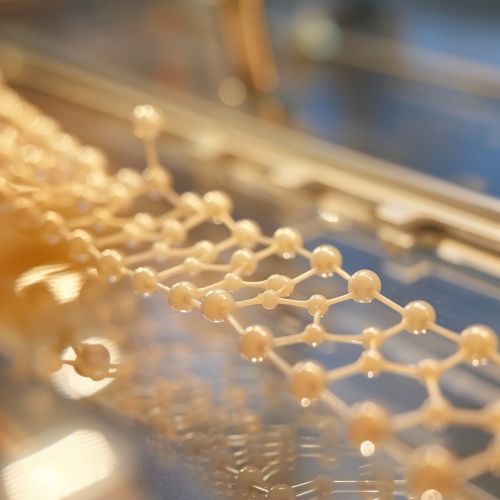Solid-phase synthesis
Introduction
Solid-phase synthesis is a method in which a compound is synthesized while bound to a solid support. The origins of this method are found in the synthesis of polypeptides, pioneered by Robert Bruce Merrifield in the 1960s, for which he received the Nobel Prize in Chemistry in 1984. This method has since been extended to the synthesis of other types of molecules, including oligonucleotides and small organic molecules. In solid-phase synthesis, the growing chain is covalently attached to an insoluble support, which allows for the easy separation of the product from the reaction mixture by simple filtration.
Principles of Solid-Phase Synthesis
The principle behind solid-phase synthesis is the use of a solid support material, to which the molecule being synthesized is attached. The support material is typically a polymer resin, although other types of materials can also be used. The molecule is attached to the support via a linker, which is a chemical group that can be selectively cleaved to release the final product. The use of a solid support allows for the easy separation of the product from the reaction mixture, as well as the removal of excess reagents and by-products, by simple filtration.
The synthesis process involves a series of reaction cycles, each of which consists of a coupling step, in which a new monomer unit is added to the growing chain, and a deprotection step, in which a protecting group is removed to expose the reactive site for the next coupling step. The sequence of these steps is repeated until the desired molecule is fully assembled. After the final coupling step, the molecule is cleaved from the support to yield the final product.
Advantages of Solid-Phase Synthesis
Solid-phase synthesis offers several advantages over traditional solution-phase synthesis. One of the main advantages is the ease of purification. Since the product is attached to a solid support, it can be easily separated from the reaction mixture by simple filtration, eliminating the need for complex purification procedures. This is particularly beneficial in the synthesis of complex molecules, where purification can be a major challenge.
Another advantage of solid-phase synthesis is the ability to perform parallel synthesis. This is a technique in which multiple different molecules are synthesized simultaneously on different solid supports. This allows for the rapid synthesis of large libraries of molecules, which is particularly useful in drug discovery and development.
Furthermore, solid-phase synthesis allows for the use of excess reagents, which can drive the reactions to completion and increase the yield of the product. This is because the excess reagents and by-products can be easily removed by washing the solid support.
Applications of Solid-Phase Synthesis
Solid-phase synthesis has a wide range of applications, particularly in the field of biochemistry and medicinal chemistry. One of the main applications is in the synthesis of peptides and proteins. Solid-phase peptide synthesis, pioneered by Merrifield, is now a standard method for the synthesis of peptides in both research and industrial settings.
Solid-phase synthesis is also used in the synthesis of oligonucleotides, which are short sequences of nucleotides. This is a key technique in the field of molecular biology, as it allows for the synthesis of specific DNA or RNA sequences for use in various experiments.
In the field of medicinal chemistry, solid-phase synthesis is used in the synthesis of small organic molecules, particularly in the context of combinatorial chemistry. This is a technique in which large libraries of molecules are synthesized and screened for biological activity, in order to identify potential new drugs.


Challenges and Future Directions
Despite its many advantages, solid-phase synthesis also has some challenges. One of the main challenges is the need for suitable protecting groups and linkers, which can be selectively removed without affecting the rest of the molecule. The development of new protecting groups and linkers is therefore an active area of research.
Another challenge is the synthesis of large and complex molecules, which can be difficult due to steric hindrance and the need for precise control over the reaction conditions. Advances in the design of solid supports and the development of new coupling reagents are helping to overcome these challenges.
Looking to the future, solid-phase synthesis is likely to continue to play a key role in the synthesis of complex molecules, particularly in the fields of biochemistry and medicinal chemistry. The development of new methods and technologies, such as automated synthesis machines and microfluidic devices, is expected to further enhance the capabilities of solid-phase synthesis.
